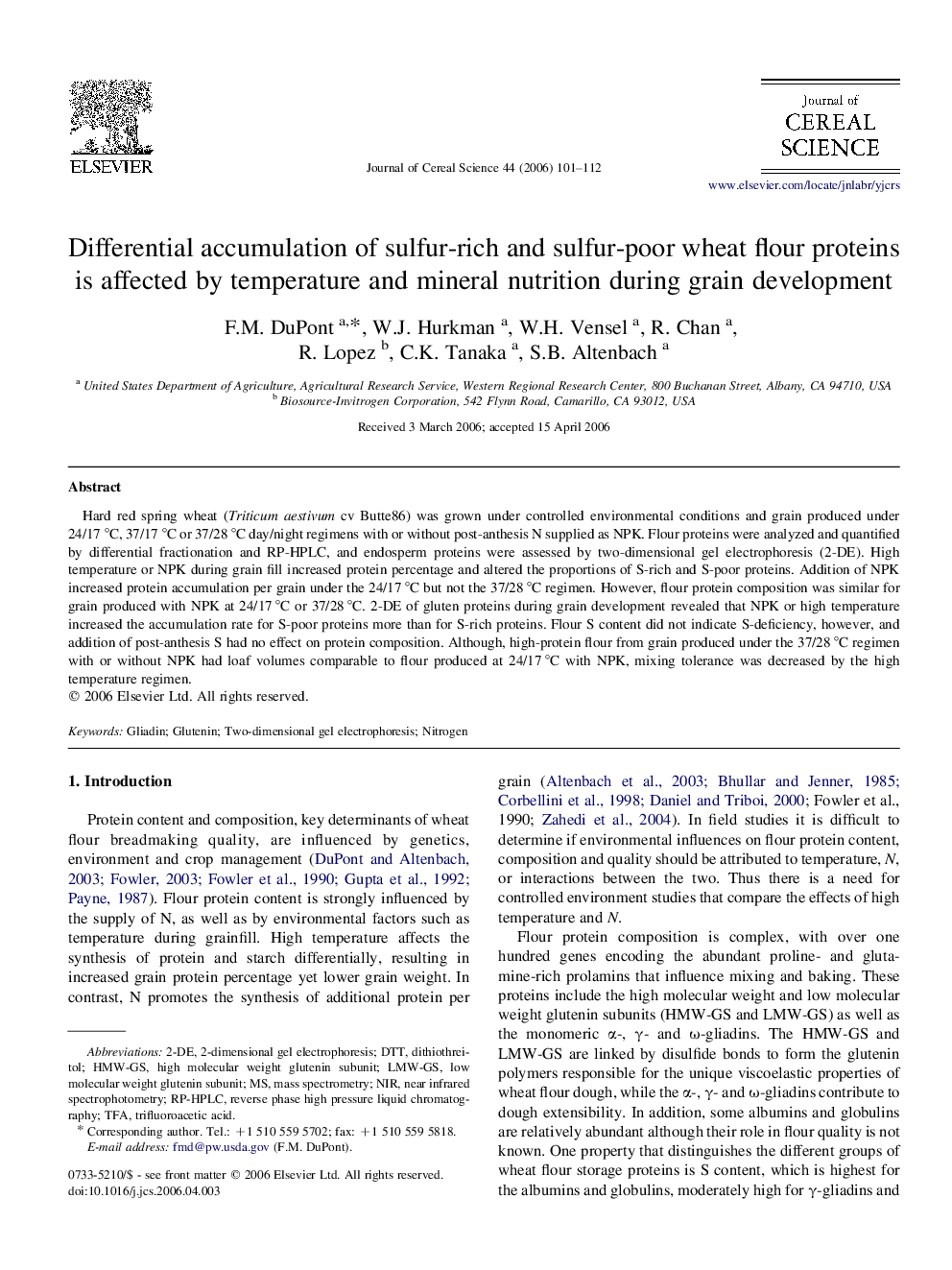| Article ID | Journal | Published Year | Pages | File Type |
|---|---|---|---|---|
| 4516757 | Journal of Cereal Science | 2006 | 12 Pages |
Hard red spring wheat (Triticum aestivum cv Butte86) was grown under controlled environmental conditions and grain produced under 24/17 °C, 37/17 °C or 37/28 °C day/night regimens with or without post-anthesis N supplied as NPK. Flour proteins were analyzed and quantified by differential fractionation and RP-HPLC, and endosperm proteins were assessed by two-dimensional gel electrophoresis (2-DE). High temperature or NPK during grain fill increased protein percentage and altered the proportions of S-rich and S-poor proteins. Addition of NPK increased protein accumulation per grain under the 24/17 °C but not the 37/28 °C regimen. However, flour protein composition was similar for grain produced with NPK at 24/17 °C or 37/28 °C. 2-DE of gluten proteins during grain development revealed that NPK or high temperature increased the accumulation rate for S-poor proteins more than for S-rich proteins. Flour S content did not indicate S-deficiency, however, and addition of post-anthesis S had no effect on protein composition. Although, high-protein flour from grain produced under the 37/28 °C regimen with or without NPK had loaf volumes comparable to flour produced at 24/17 °C with NPK, mixing tolerance was decreased by the high temperature regimen.
